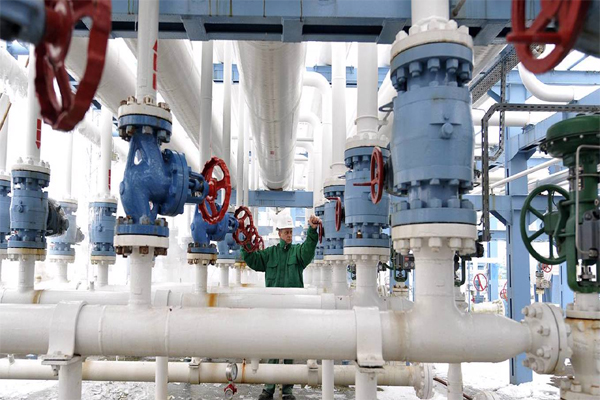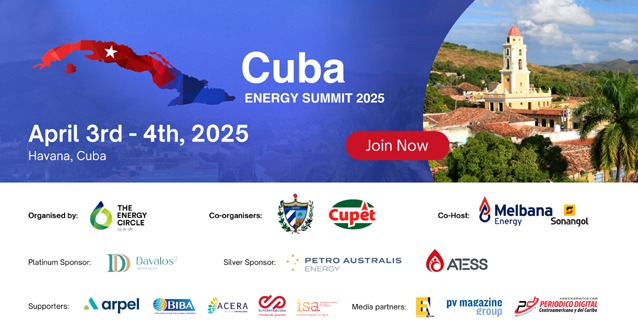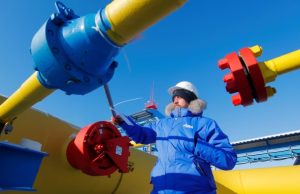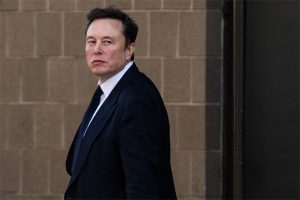Russia’s war in Ukraine has underscored the need for Europe finally to invest more in its own defense and security. Such an outrageous
act of aggression calls for harsh sanctions, which will require new policy mechanisms to help EU member states maintain solidarity.

By Ana Palacios, Silvia Merler, Francesco Nicoli,Simone Tagliapietra
MADRID – Russian President Vladimir Putin’s decision to invade Ukraine is a dramatic wake-up call for Europe. The European Union can no longer be a passive player in global affairs. It must reinforce its own security structure within the broader context of NATO.
The COVID-19 crisis offers important lessons in this regard. The intuition behind Europe’s response to the pandemic was that a common, symmetric, external shock to economic policymaking called for common, internally coherent, and consensual solutions. This translated into a political agreement to create a centralized spending initiative financed with funds raised by the European Commission. The new Recovery and Resilience Facility provided EU member states with the means – including through fiscal transfers – to respond to the health crisis and its economic consequences.
In the face of Putin’s blitz, Europe urgently needs a similar mechanism to finance investment in its long-term safety, and to help member states bear the economic cost of enacting meaningful sanctions against Russia. The steps needed to secure Europe geopolitically will be costly, and they will go beyond simply supporting our aging military forces.
Part of the cost will stem from the effects of sanctions, and part from the need to adapt to the new geopolitical environment. Not all EU members have enough fiscal capacity to absorb these costs. Some (such as Italy) have much higher levels of public debt, and others (such as Germany) are more exposed to the rebound effects of sanctions.
Moreover, no EU member can feasibly pursue rapid and full diversification away from Russian gas. As former Russian President Dmitri Medvedev has threatened, Europeans face the prospect of skyrocketing gas prices. And with Ukraine and Russia together accounting for almost 30% of global wheat exports, food also will be affected worldwide – a problem compounded by an increase in the price of fertilizers, of which Russia is a major producer.
The downside risks to the economy will therefore include new inflationary pressures on top of those associated with the post-pandemic reopening. Facing the specter of stagflation, the European Central Bank may feel more pressure to tighten monetary policy. If so, the expectation of rate increases might in turn force some countries into fiscal tightening, which would render meaningful additional security spending all but impossible.
The COVID-19 crisis offers important lessons in this regard. The intuition behind Europe’s response to the pandemic was that a common, symmetric, external shock to economic policymaking called for common, internally coherent, and consensual solutions. This translated into a political agreement to create a centralized spending initiative financed with funds raised by the European Commission. The new Recovery and Resilience Facility provided EU member states with the means – including through fiscal transfers – to respond to the health crisis and its economic consequences.
In the face of Putin’s blitz, Europe urgently needs a similar mechanism to finance investment in its long-term safety, and to help member states bear the economic cost of enacting meaningful sanctions against Russia. The steps needed to secure Europe geopolitically will be costly, and they will go beyond simply supporting our aging military forces.
Part of the cost will stem from the effects of sanctions, and part from the need to adapt to the new geopolitical environment. Not all EU members have enough fiscal capacity to absorb these costs. Some (such as Italy) have much higher levels of public debt, and others (such as Germany) are more exposed to the rebound effects of sanctions.
Moreover, no EU member can feasibly pursue rapid and full diversification away from Russian gas. As former Russian President Dmitri Medvedev has threatened, Europeans face the prospect of skyrocketing gas prices. And with Ukraine and Russia together accounting for almost 30% of global wheat exports, food also will be affected worldwide – a problem compounded by an increase in the price of fertilizers, of which Russia is a major producer.
The downside risks to the economy will therefore include new inflationary pressures on top of those associated with the post-pandemic reopening. Facing the specter of stagflation, the European Central Bank may feel more pressure to tighten monetary policy. If so, the expectation of rate increases might in turn force some countries into fiscal tightening, which would render meaningful additional security spending all but impossible.
________________________________________________
Ana Palacio, a former minister of foreign affairs of Spain and former senior vice president and general counsel of the World Bank Group, is a visiting lecturer at Georgetown University, Silvia Merler, an adjunct lecturer at the Johns Hopkins University School of Advanced International Studies, is Head of ESG and Policy Research at Algebris Investments, Francesco Nicoli is Professor of Political Economy at Ghent University and an affiliate fellow at the University of Amsterdam,Simone Tagliapietra is a senior fellow at Bruegel and an adjunct professor at Università Cattolica del Sacro Cuore. Energiesnet.com does not necessarily share these views.
Editor’s Note: This article was originally published by Project Syndicate on February 28, 2022. All comments posted and published on EnergiesNet.com, do not reflect either for or against the opinion expressed in the comment as an endorsement of EnergiesNet.com or Petroleumworld.
Use Notice: This site contains copyrighted material the use of which has not always been specifically authorized by the copyright owner. We are making such material available in our efforts to advance understanding of issues of environmental and humanitarian significance. We believe this constitutes a ‘fair use’ of any such copyrighted material as provided for in section 107 of the US Copyright Law. In accordance with Title 17 U.S.C. Section 107. For more information go to: http://www.law.cornell.edu/uscode/17/107.shtml.
EnergiesNet.com 03 01 2022












